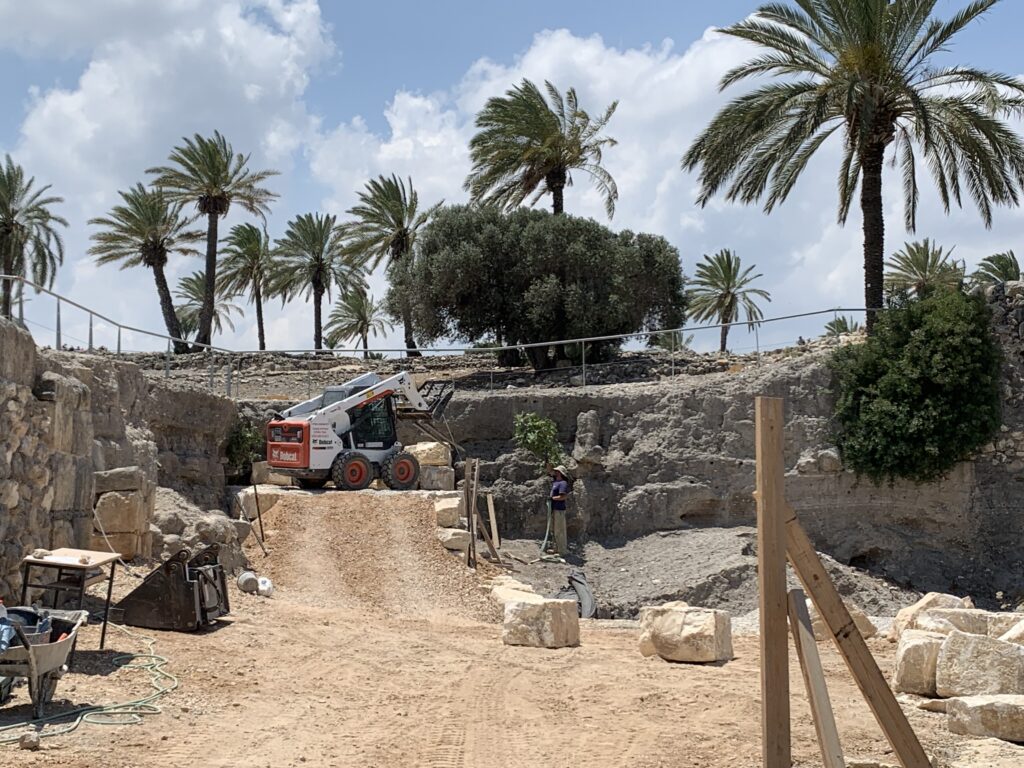"And this is the basic law of the Temple: absolute holiness!" (Ezekiel 43:12 NLT)
Israel served out their exile. And halfway through their exilic sentence, God gave Ezekiel a vision of His return to the Temple. He asked Ezekiel to re-instruct the Israelites on the foundations of worship. The resounding theme? Holiness. The Temple, and consequently all God’s people were meant to be a set aside space dedicated to God’s purpose. The basic law was holiness.
When we think about our own tabernacle – or the earthy square footage where the Spirit of God rests – the basic command is still holiness. We can squawk about Old Testament being eclipsed by New, but we cannot forget that Peter (one of Jesus’ premiere disciples) echoed this clarion call to holiness long after the ascension. Bless Peter, he must have been a parent, because he even gives us us a why.
"So you must live as God's obedient children. Don't slip back into your old ways of living to satisfy your own desires You did't know any better then. But now you must be holy in everything you do, just as God who chose you is holy. For the Scriptures say, "You must be holy because I am holy." (1 Peter 1:14-16 NLT)
So what, pray tell, does holiness look like in 2023? How do we float through this ever-moving flood of debauchery without taking on the sewage water we’re thrust upon? How can we keep from polluting our souls?
Sadly, we don’t. We can’t keep dry from sin anymore than a ship in churning waters. The best we can manage is confession and short accounts. The beauty of New Testament belief is that it is built around grace; available through repentance. Our God came down to dwell with us so He could settle or sin issue. And when we confess, He covers us again with the corner of His absolution, setting us apart anew.
Unfortunately, our modern Christian culture has turned its back on confession. The people in church, from the pulpit to the last pew, pretend to have long-ago mastered their sin issue: living perfected here on earth. HOGWASH! We are, today, just as desperately in need of God’s grace as the day we first confessed Jesus as our Savior. Maybe even moreso, because at some point we bought the lie that we are already good enough.
“One of the biggest mistakes we’ve made in the modern Church is to reimagine spiritual maturity as the need to confess less… Spiritual maturity means more confession, not less… A maturing community is a confessing community – not a church without sin, but a church without secrets.”
(Praying Like Monks, Living Like Fools, Tyler Staton)
Tyler compares confession to the excavation of an ancient city. I remember Megiddo and how our guide explained that it was far easier to start with a city’s remains than it was to begin again. Such rebuilding results in layers and layers of lingering debris. You can see the story in the excavation. He tells his readers: confession digs below the surface of our personal history to discover what informs our present.

Confession remains unpleasant, but our bareness before God fosters humility. Humility, historically, keeps God close at hand. Bringing our need to light actually brings Him near.
So what do we need to confess? Tyler tells us the ancient believers practiced four regular confessions:
Blatant – This the big stuff. Ten commandment violations; obvious things the world can easily label as wrong.
Deliberate – These sins are a bit more subtle. We typically recognize them within the church community, but they are more socially acceptable with non-believers.
Unconscious – These have to do with hidden patters of thinking and buried motives. The Holy Spirit will have to help us dig out these stubborn systems and beliefs.
Inner Orientation – These trespasses are the most stubborn to unearth and have to do with trust. We are leaning into someone or something less than Jesus and our codependence is only revealed when it’s interrupted.
Truthfully, the longer I spend with Jesus, the deeper we dig. Big Ten blatant sins aren’t a daily issue any longer. Deliberate is diminishing as well. Instead, I spend most of my excavating the unconscious patterns and scratching my head over inner orientation. The longer I work with the Holy Spirit on site, the more I’m convinced that this is a lifetime endeavor. The archaeologists have been digging out Meggido for more than a hundred years. Why would a soul require any less?
"Those whom I [dearly and tenderly] love, I rebuke and discipline [showing them their faults and instructing them]; so be enthusiastic and repent [change your inner self – your old way of thinking, your sinful behavior – seek God's will.] (Revelation 3:19 AMP)
**I usually write my closing prayer with in ‘we’ form, but today I felt led to make it personal. I hope you’ll adopt it as your own. Blessings upon your confession, my friend!**
O Lord, help me. I cannot be holy apart from You or without confession. I cannot even see unconscious sins or inner orientations without Your supernatural assistance. Today I admit, even insist upon my need of grace. I am a sinner saved by mercy alone. Help me identify and excavate every pretension that sets itself up against You. Remake me as holy, however long it requires. Amen.